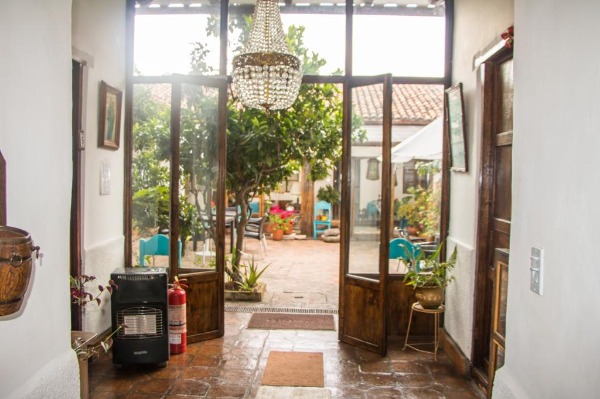Is it time to get out of Ecuador? The news seems to suggest it is
My sister called on Sunday.
I had just returned from a shopping trip to Supermaxi. As is my custom, I interrupted my 15-minute walk back to El Centro with a break in Parque de la Madre. I sat on a shady bench and watched and listened as children careened and squealed down the kiddie zipline. Under a nearby tree, teenage lovers lay in each other’s arms, escaping parental eyes. Immediately in front of me, a puppy chased a ball. It was a fine day to be in the park.
zipline. Under a nearby tree, teenage lovers lay in each other’s arms, escaping parental eyes. Immediately in front of me, a puppy chased a ball. It was a fine day to be in the park.
Back home, I had just finished putting away the groceries when the phone rang. As I settled into my chair, I had not even finished my “gee-sis-it’s-good-to-hear-from-you” intro when she interrupted:
“You better get out of there now.”
“What do mean, get out of there?” I asked.
“Well, I just read that they’re rioting in the streets down there,” she said. Then, in rapid order, she ticked off a list of Ecuador’s little horribles, including volcanic eruptions, higher taxes, economic collapse, the death of the oil industry, and bombings in Guayaquil.
“And that dictator of yours is throwing thousands of people in jail, isn’t he?” she continued.

Things are pretty much normal in Parque de la Madre.
As it turned out, my sister was in a panic over several things, not just my well-being in Ecuador. She had just done a calculation of recent losses to her 401k.
She spends a lot time online and is fairly well read although sometimes prone to exaggeration. It turned out that she had read several articles about Ecuador that laid out a scenario of chaos, mayhem and collapse. I had read some of them too.
Having been a foreign correspondent in southeast Asia many years ago, I understood why news stories make things sound awful in foreign places. Doom and gloom sell newspapers and television news broadcasts, and the more doomy and gloomy, the better. No one wants to hear about a little country half way around the world that has serious problems but where things are basically okay.
I explained to my sister why I wasn’t leaving. I told her about my visit to the park, my breakfast earlier at an outside table under an umbrella, and of buying strawberries from the wheelbarrow lady in front of my apartment.
Yes, I told her, there was serious trouble in Quito a couple weeks ago when indigenous protesters confronted police. There was even some pushing and shoving in Cuenca when a group of protesters tried to break through a police cordon at Parque Calderon, and a couple of canisters of tear gas were tossed. And there continue to be sporadic roadblocks on highways, erected in small indigenous communities, that the police are forced to tear down. And there will be more protests.
But, I also told her that protest leaders promised to fill the streets of Quito with 300,000 but were able to muster only 10,000. The indigenous road-blocks in rural areas were designed to paralyze the country, but traffic continues to move.
And yes again, some protesters were jailed during fights with police. At last count, something like 60 were still in jail, but certainly not thousands.
It is very true that Ecuador faces major economic problems as oil prices plummet and the dollar continues to strengthen. It’s almost a “perfect storm” of bad economic conditions and there are surely some hard times ahead. The government will have to trim budgets and fewer roads, schools and hospitals will be built. The president will be forced to put much of his citizen’s revolution on hold. Certainly, it could be as bad as it was in the U.S. in 2008 and 2009.
The most serious threat the country faces, I told my sister, is Cotopaxi. In fact, the country is confronting what could be a horrendous natural disaster that few in government are willing to acknowledge. Emergency plans are based on a relatively mild eruption because it is almost impossible to plan for a major eruption the size of the last one, 140 years ago. We hope it won’t happen, but it is very possible.
But countries recover from natural disasters too, and are usually smarter and stronger for the experience.
I told my sister that Cuenca is out of range of the volcano and reminded her that one of the reasons I chose to live here was because it was far from active volcanoes , as well as being in an area of lower earthquake risk.
Closing the conversation, I told her that if things get real bad globally, I would rather be in Ecuador than any other country I can think of. This is a country that has lived much of its existence in hard times and one that can adjust to them again if it has to. It’s a country of self-sufficiency. It’s a country of survivors
So Sis, I said, most things are pretty much normal here. It’s a beautiful day and life goes on as it always has.
And no, I have no plans of getting out of here.






















